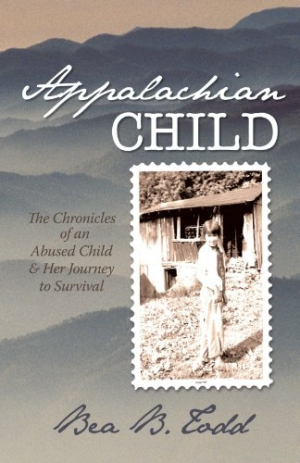Appalachian Child
A straightforward account of an abusive childhood in the rural Appalachian Mountains of West Virginia, this unsentimental memoir succeeds more as a chronicle of a bygone way of life than it does as the story of a strong-willed survivor of a father’s rage.
Bea B. Todd begins Appalachian Child by speaking directly to readers who may have suffered a similar fate. As children of abuse, Todd writes, they have a decision to make: “Choose to remain a victim or choose to become a survivor.” Clearly, Todd is a woman of considerable grit. She grew up under the duress of a father who would literally beat her over spilled milk. But she made up her mind early in life that, despite the bleakness of her environment, she would not only endure, she would thrive. With considerable grace, good judgment, and perseverance, Todd apparently shed the abuse of her childhood and created a satisfying adult life filled with good works and a loving family.
But as much as one may admire Todd for her determination, this telling of her tortured childhood will not prove as cathartic for readers as it apparently was for the author herself. That’s because Todd has not turned the story of her survival into a satisfying narrative that compels readers to keep turning the pages.
Todd’s story falls flat, and, late in the book, when she reverts to directly addressing victims of abuse, it really veers off course. For example, she devotes a full chapter to sources of help available to those suffering at the hands of abusive adults. Had Todd written her book for children, this list could prove helpful. But Appalachian Child will be read by adults, not young children who need to be told that if “the abuser is outside your immediate family then you must go to your mother or father” for assistance.
Todd is at her most engaging when she turns her sharp eye to remembering the mundane details of her bare-bones existence in rural Appalachia. Todd is a fount of information about what it took to survive in a home without running water or electricity, from the wild foods the family harvested to detailed instructions on sterilizing glass canning jars without the use of a gas or electric stove. As a writer, Todd seems most alive when describing the homely facts of her life—a world that readers may find truly worth exploring.
A book about abuse that should have been more about Appalachia, this is a memoir that, sadly, leaves the reader wishing for more.
Reviewed by
Diane Taylor
Disclosure: This article is not an endorsement, but a review. The publisher of this book provided free copies of the book and paid a small fee to have their book reviewed by a professional reviewer. Foreword Reviews and Clarion Reviews make no guarantee that the publisher will receive a positive review. Foreword Magazine, Inc. is disclosing this in accordance with the Federal Trade Commission’s 16 CFR, Part 255.

